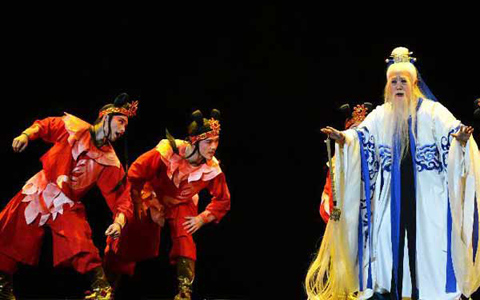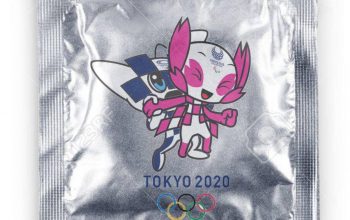Before coming to Australia, the 87-member Chinese Classical Opera Company toured New Zealand and they were supposed to arrive in Melbourne on 19 November.
A formal welcome was planned the next day at the Mural Hall at Myer Emporium. However, this event had to be cancelled as was the opening of the Opera at the Princess Theatre, which was to start on 21 November and continue for 19 days, coinciding with the Olympic Games. The repertoire included classics like Trouble in Heaven, Autumn River, and The Drunken Beauty. It would also include The Jade Bracelet, which would be performed outside China for the first time.
On 16 October 1956, the Australian government announced that it would not allow the Peking Opera to perform in Melbourne during the Olympic Games. The decision was taken by the Cabinet, suggesting that it was treated as a political issue of great importance.
It claimed that its decision was a response to a request from the Olympic Committee. Another report suggested that because 12 members of the opera company held diplomatic or military passports they were considered government agents (as they probably were) intend to use their visit for propaganda.
The government also worried that with Taiwan competing, these agents might provoke an incident. This was unlikely. Agents attached to the trope would have been there to ensure none defected. Nothing more sinister.
But then again, it was the Cold War and Reds were purported to be hiding under beds. In the US, the Chinese classical opera company was not allowed in the US. And when it came to Toronto, the US State Department warned American citizens that buying tickets violated American law. While Australia was not quite as paranoid as the US, it was wary of those fiendishly clever Chinese communists.
Artists and cultural groups attacked the ban and Menzies was called an “artistic hillbilly.” Another critic said that when “culture and sport get mixed up with politics, democracy in Australia has reached a sorry pass.” An Age editorial mocked the ban, arguing that it was ludicrous to suggest that “the ancient Chinese opera will cause a riot,” while the Opposition Leader, Doc Evatt raged that the government’s decision “will hold Australia up to ridicule and contempt.”
On the other hand, the ambassador for Nationalist China, Chih-Ping Chen, was “gratified” with the decision.
This decision forced the company to hastily change its itinerary and visit other states, starting in Sydney on 21 November, and then touring other States before coming to Melbourne on 10 December 1956.
The Chinese responded with grace. The company’s leader, Hu Kuang Hsiao told the Australian organiser of the tour, that “we appreciate your difficulties and for the sake of our good relations and so that our tour may proceed in harmony, we agree to change the schedule and we will perform in Melbourne either before or after the Games, as you wish.”
While the government was wary of the company, the public greeted their performances enthusiastically.
According to the Australian Women’s Weekly: “The clever acting, miming, and dancing of the company and the barbaric splendour and brilliant color of the settings are enchanting all spectators.” According to the Canberra Times: “Chinese opera is a spectacular and elaborate art that more than rivals the colour, movement and opulence of the Western world’s most ambitious stagings.” And the Sydney Morning Herald commented that the performance was “a dignified, beautiful, and often exciting experience.”
What Australian audiences saw was a traditional art form that went back to Sung Dynasty (960-1279). Chinese Opera story lines varied. There were sagas of heroes and heroines who sacrifice their lives for their country. Simple stories of rural life. And other plots borrowed heavily from folk tales and fairy stories. After the Cultural Revolution (which would kick off in 1966), such cultural treasures like the Peking Opera Company were purged and state-sanctioned operas took its place in which Red Guards heroically put class enemies to death..
It would be naïve to believe that there were no political motives for the tour. By drawing attention of China’s high culture, Peking was able to refute accusations coming out of Taiwan that communists were little more than barbarians. It was simply the exercise of soft power, designed to win hearts and minds. The ban, however, was crude Cold War politics at work, which backfired and made the Australian government look small-minded and mean-spirited.



